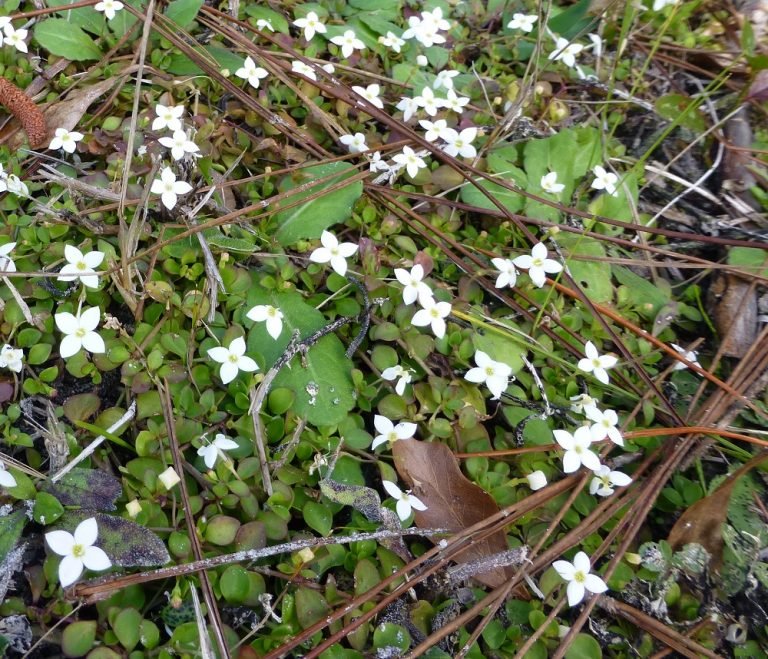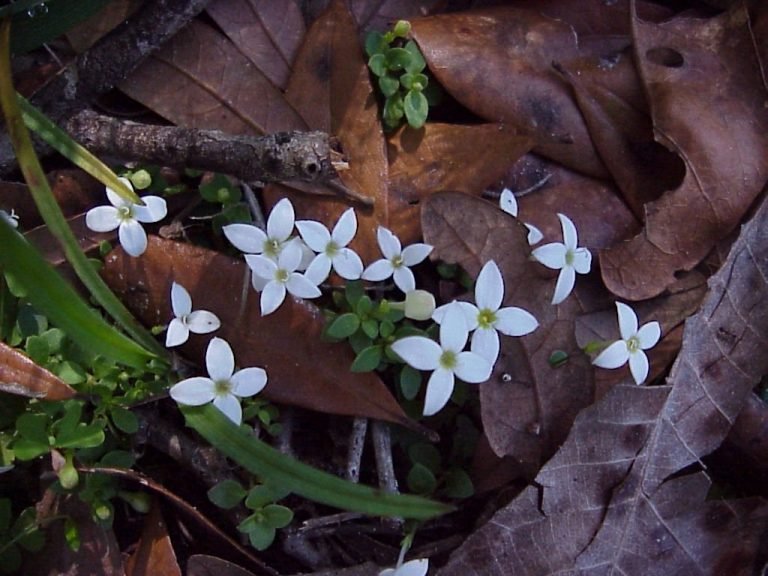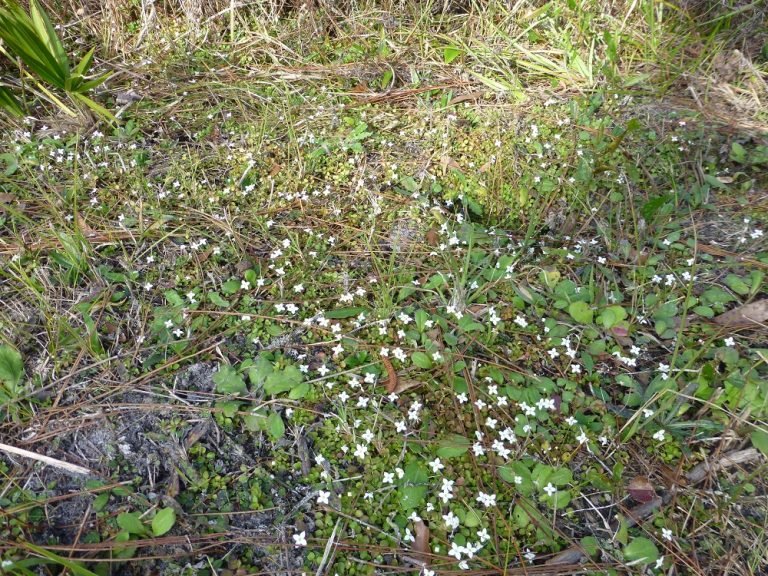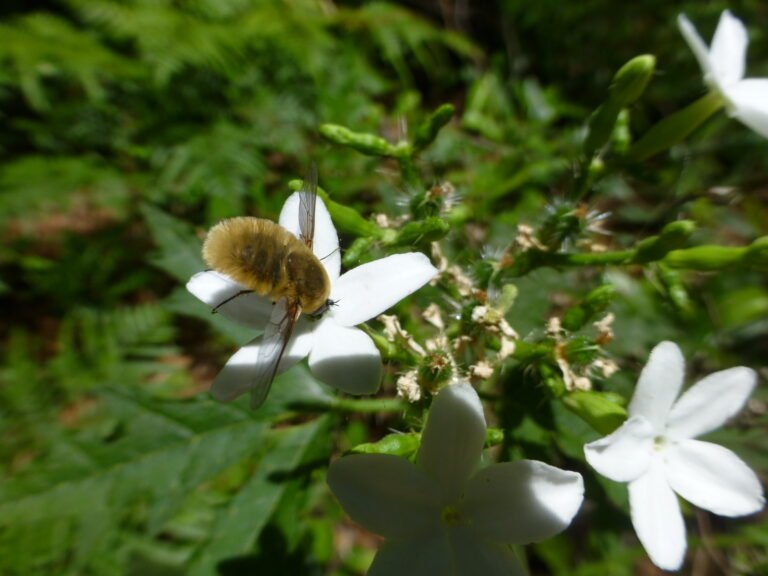Houstonia procumbens
(Innocence)

Common Name, Latin Name, and Family
Common names include innocence, roundleaf bluet, fairy footprints, and creeping bluet.
Its Latin name is Houstonia procumbens. Previously known as Hedyotis procumbens.
It is found in the Rubiaceae, or madder, family.
Form
Innocence is a very low growing, mat forming, perennial wildflower. The plant rarely exceeds two inches in height, and generally no more than ten inches in width.
Leaves
Its leaves are opposite, ovate to elliptic with entire margins, and have a succulent appearance.
Flowers
The flowers are four lobed and can be found in clusters or singly.
The white flowers begin to appear in December and continue on until May.
The flowers are a very important nectar source during the winter months when fewer flowers are in bloom.
Wintertime finds tiny white flowers beginning to appear along the floor of the landscape, which is a stark contrast to the wide range of brown hues that are all around. The small star shaped flowers are those of a much overlooked native flower known as innocence.

Habitat
Innocence can be found in dry pinelands, flatwoods, sandhills, open woodlands, and disturbed sites.
Native Range
It is found naturally occurring in most counties of Florida.
Landscape Use
In the home landscape it grows in full sun to part shade with average to dry soils.
It is incredibly beautiful in a partially shaded rock garden.
If you are fortunate enough to have this lovely wildflower in your landscape share some with a friend.

Wildlife Use
The flower nectar provides for many insects such as bees, bee flies, and small butterflies.

Propagation
Nurseries do not carry innocence, but it does easily transplant (to site or in pots) if care is taken to retain as much of the soil and organic matter as possible around the root system, and keep it well watered until established.
You Might Also Like: Late Winter Blooming Natives
